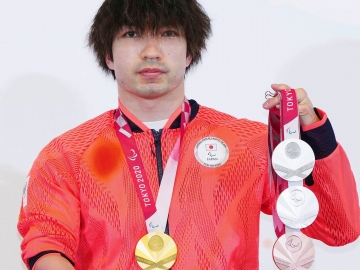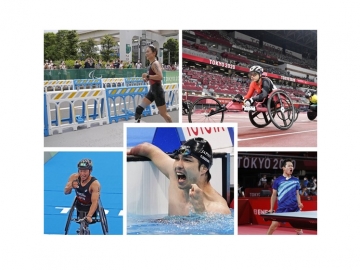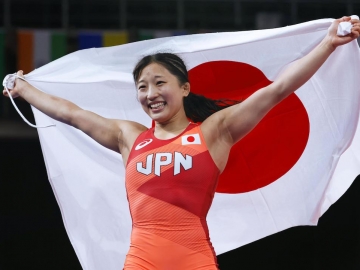Tokyo 2020 President Seiko Hashimoto took the stage and talked about the Tokyo 2020 outcomes and her outlook for the future
The “Waseda 2020 Lecture” series of lectures, held under the supervision of Waseda University Specially-Appointed Professor “Captain” Saburo Kawabuchi, has invited leading figures in the sports world to come and speak at Waseda University. The project began in 2017 and has now concluded with the 8th lecture, which was held on November 29, 2021. The final guest was Seiko Hashimoto, President of the Tokyo Organising Committee of the Olympic and Paralympic Games (Tokyo 2020).
In addition to streaming the lecture online, this was the first in-person lecture to be held in some time. “Captain” Saburo Kawabuchi, the coordinator of this lecture series and the founder of J.League, gave a greeting while the audience watched in the Ibuka Masaru Memorial Hall in the International Conference Center. Mr. Kawabuchi quoted the front page of the day’s Nikkei newspaper and gave the warm message that “You should always consider the significance of your own existence and then act.”

Next, President Hashimoto, with a “Waseda Bear” university mascot stuffed animal in her jacket pocket, went to the podium and began by expressing gratitude for the activities that individuals at Waseda had taken for the Tokyo 2020 Games.
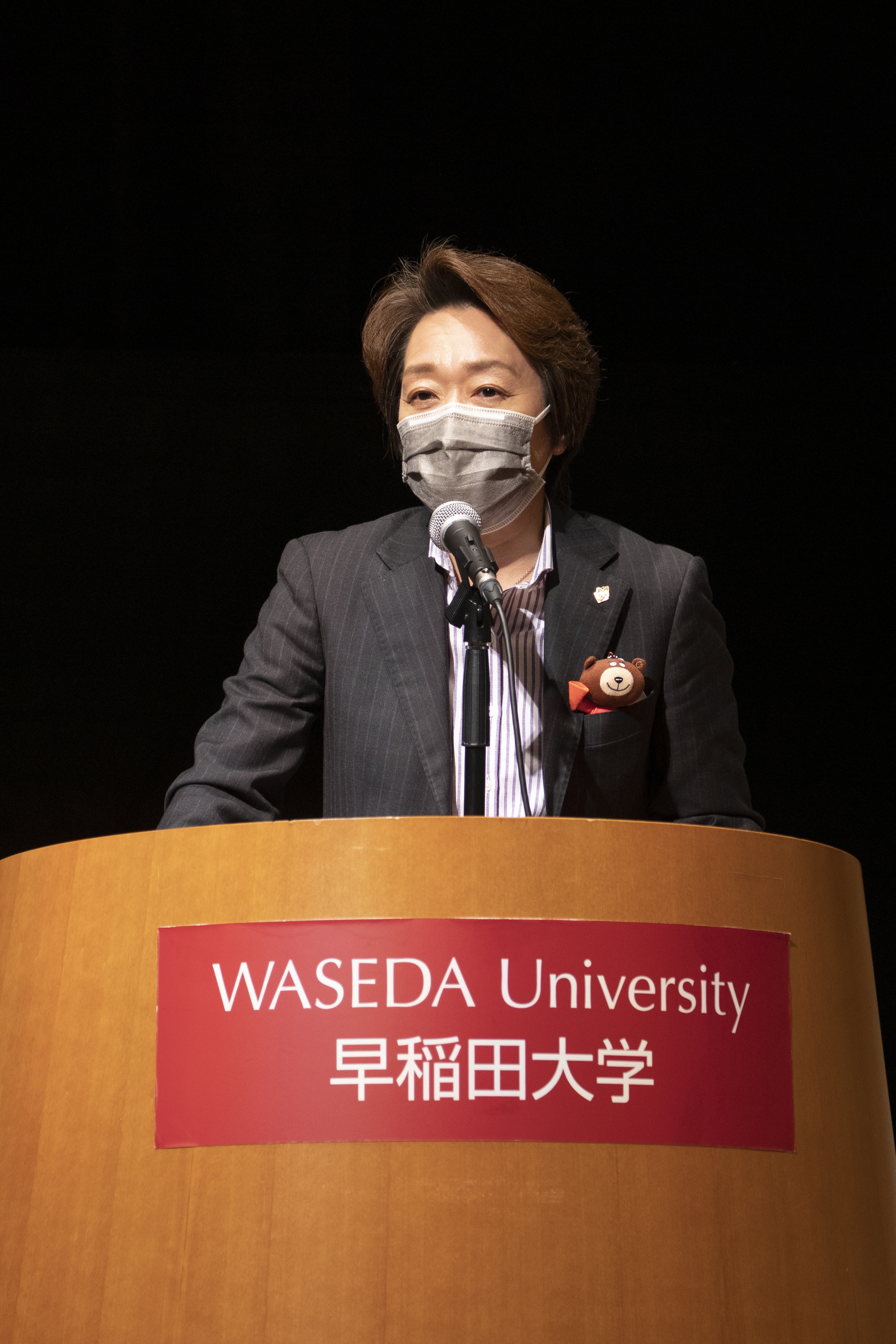
The theme of her lecture was “Tokyo 2020 Achievements, Challenges, and Legacy Prospects.”
The Tokyo 2020 Games were held after the unprecedented situation of being postponed for a year due to the spread of COVID-19, and President Hashimoto, from a variety of perspectives, talked about the knowledge gained from this, as well as about future prospects for the Games.
She discussed how, with people worldwide concerned about COVID-19, Tokyo 2020, as a measure against the virus, requested that all athletes and related individuals be thoroughly inspected and manage their behavior in order to prevent clusters from occurring. All foreign athletes at the Tokyo 2020 Games were able to complete their events without becoming seriously ill, and this showed the possibility of expanding economic activities, even amidst the COVID-19 pandemic, by making appropriate preparations.
However, control of infectious diseases was not the only effort involved in creating a world-class Olympics and Paralympics. Preparations had been underway from all angles since 2013, when it was decided that the Tokyo 2020 Games would be held.
In addition to improving the competitiveness of Japanese athletes, there were efforts for enhancing security to withstand hundreds of millions of cyber-attacks, training for emergencies, flexibly changing schedules to prevent heatstroke, introducing new technologies with an eye towards post-Games applications, promoting gender equality, establishing the Olympic Village to provide prompt support by being close to the athletes, and more.
Underlying all of this is the idea that “Sports will change the world.” The infrastructure and people’s awareness that were created by the Games remain as their “legacy,” and President Hashimoto expressed her own thoughts in saying that the significance and value of the Olympics and Paralympics was to contribute to the development of Japan, and, by extension, developing Japan into a world leader.
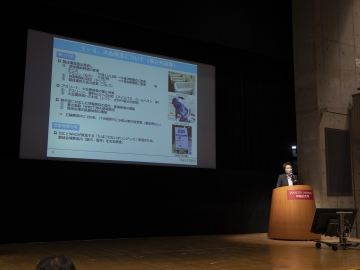
President Hashimoto felt that the Paralympic Games were of particular significance. Because the Paralympics were held in Japan this time, parasports also received a lot of media coverage, and, for the local municipalities that accepted participants, it was a turning point for promoting the universal design of public facilities.
Cooperation with school education was also important. Familiarizing people with disabilities from a young age provides them with the ground to understand disabilities as a natural thing when they grow up. As such, she began educational activities when it was decided that the Games would be held in Tokyo, and promoted measures such as holding exchange meetings with para-athletes.
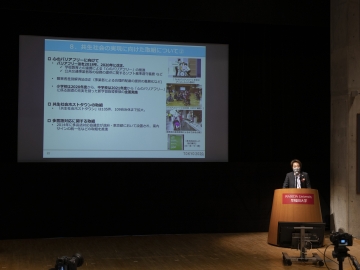
She also said that being appointed as President of the Organising Committee was unexpected. President Hashimoto played a major role in the Games, and it was her positive personality that really made an impression. Rather than being overwhelmed by the mountain of issues that accompanied the Tokyo 2020 Games, she thought of them as “opportunities” and worked to resolve them while people around the world looked on.
The roots of that positive personality are from when she was active as an athlete.
Born five days before the opening of the 1964 Tokyo Olympics, President Hashimoto aimed to participate in speed skating at the Winter Olympics with the support of her father, who loves sports. However, when she was in high school, she became unable to take deep breaths because of symptoms caused by a kidney disease, and she had no prospects of a complete recovery because of chronic kidney inflammation. President Hashimoto, after this illness from which she was not expected to recover, became rather positive about injuries that can be completely healed, often saying, “I will heal soon!” for injuries she would later sustain in her competitive life that took three months to completely heal. She also eventually overcame her serious symptom of not being able to take deep breaths, replacing it instead by perfecting abdominal breathing, and also made it to the Olympics.
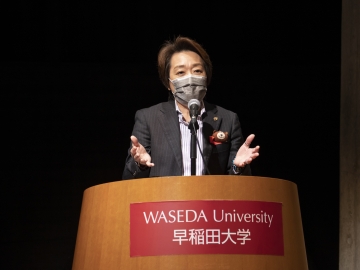
President Hashimoto is also an individual that has taken on the challenge of doing unprecedented things in a wide variety of fields. In terms of the Olympics, she aspired to participate in both the Summer and Winter Olympics, which was considered in Japan at the time to be very risky. She chose cycling as her event for the Summer Olympics, and, after spending six months training with the Waseda University Cycling Club, became the first Japanese person to accomplish the feat of participating in both the Summer and Winter Olympics.
As a politician, she was the first member of the House of Councilors to give birth, which triggered the establishment of a maternity leave system in the House of Councilors. And, even though she says that “Someone has to open things up,” her ability to take action is not something that can easily be imitated.
With the positive heart that she acquired during her turbulent life, President Seiko Hashimoto continues to be a pioneer of the times. When asked what to expect from future Olympics, she mentioned that, while preserving the long history of the Olympics and Paralympics, they would flexibly change and would disseminate changes to the world for the future, including the realization of a sustainable society. Despite everything she has accomplished until now, President Hashimoto’s mission will not end until she has fulfilled her goal of using the Olympics, the Paralympics, and sports to change both Japan and the world.
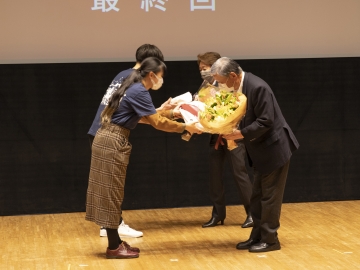
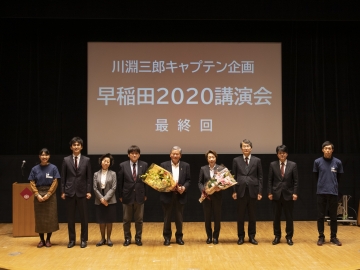
Text: Ryo Yoshima, School of Sport Sciences First Year, VIVASEDA PR Department


